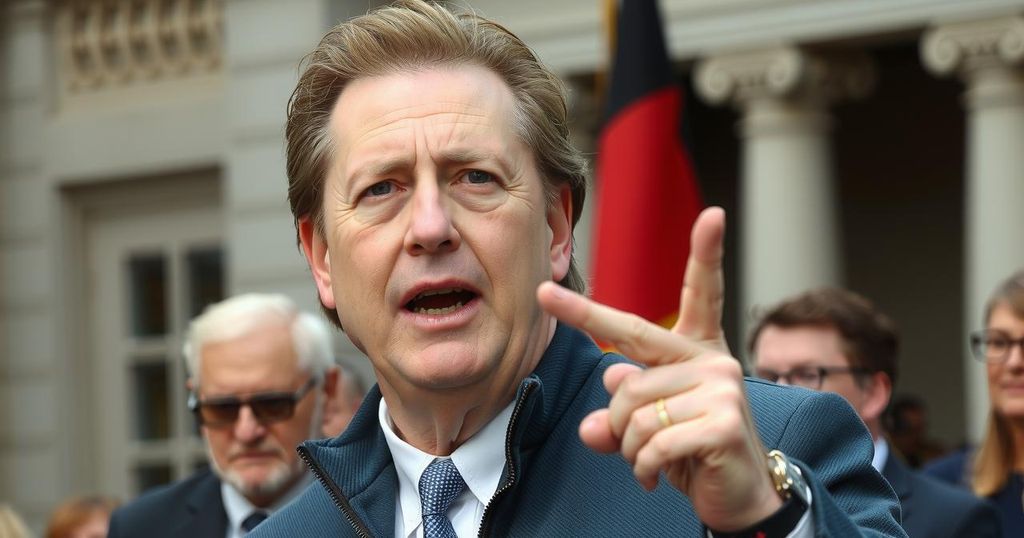German Politicians Criticize Elon Musk’s AfD Endorsement as Foreign Interference

German politicians condemned Elon Musk’s opinion piece supporting the AfD, viewing it as inappropriate foreign influence in the upcoming elections. Musk’s controversial statements, including claims that “only the AfD can save Germany,” have prompted reactions from political leaders, reinforcing the necessity of safeguarding German democracy from external pressures while the AfD rises in popularity.
Elon Musk, the U.S. billionaire and prominent entrepreneur, faced sharp criticism from various German political figures on Sunday for his supportive commentary regarding the right-wing Alternative for Germany (AfD). This piece, published in the Welt am Sonntag, was branded as inappropriate interference by both government and opposition politicians as Germany prepares for a pivotal election following the collapse of Chancellor Olaf Scholz’s coalition government. Musk’s statement indicating that “only the AfD can save Germany” triggered an uproar, with leading figures like Friedrich Merz and Saskia Esken expressing vehement opposition to external influence on domestic election matters. While the editor of Welt defended the commitment to freedom of opinion, the AfD’s rising position in polls intensifies the scrutiny surrounding the electoral landscape in Germany.
Elon Musk’s support for the AfD has emerged against the backdrop of significant political upheaval in Germany, where the incumbent coalition government led by Chancellor Olaf Scholz recently fell apart. The AfD, known for its right-wing populist stances, is currently polling second among various parties, which creates a potential challenge for mainstream political factions. This situation highlights the delicate nature of electoral integrity and the ramifications of foreign influence in domestic political affairs, raising concerns among German politicians about the implications of Musk’s commentary.
In summary, Elon Musk’s endorsement of the Alternative for Germany has incited considerable controversy among German politicians, who view it as unwarranted external interference in their electoral process. Figures like Friedrich Merz and Saskia Esken have vocally opposed this influence, emphasizing the necessity of preserving democratic integrity. The situation underscores the broader implications of influential individuals engaging in political discourse that impacts national elections, particularly amid a tumultuous political climate in Germany.
Original Source: www.investing.com








